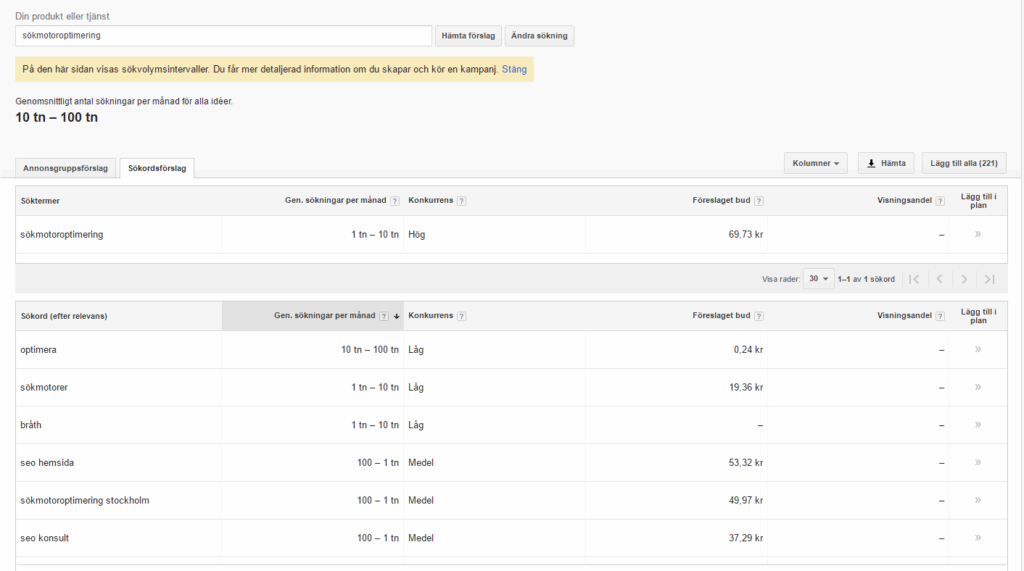
A very large portion of all searches made online is what we call informational searches. It could be someone wanting to read about koala bears or comparing different bathroom products. This is a great opportunity to get into the minds of potential future customers.
It might not be easy to directly make money off of them, but informational searches are one of the three main types of searches made online, according to Google. Someone searching for ‘the difference between SEO and SEM’ may not be in a buying position for either one, but if you provide good information, you can lay the foundation for a good relationship.
If we look at any segment, there are usually three levels (excluding the type of searches for now) of converting keywords. The most specific and best-converting ones. ‘Buy white sofa online’ could be one. The searcher has already decided what they want and just wants to find someone who can provide it.
The next level is broad but still converting. ‘Sofas’ could be an example, whereas ‘Milk’ is not (no one buys milk that way, today). Of all those who search for sofas, a certain number are ready to make a purchase, while many others are looking for interior inspiration. The third and weakest level when it comes to conversion is often informational searches. ‘How are armored vehicles made’ or ‘Who is the president of Costa Rica’ are not things that will convert particularly well, but there are ways to take advantage of the traffic in your segment, and that is something you need to do.
How to capture the informational searchers in your segment

It’s more vague and requires more content than ‘regular SEO,’ but it’s something you should definitely do. If you don’t, one of your competitors will, and that means that when the person eventually reaches a decision to buy, your competitor will already have a relationship.
Look at the image above; it’s no coincidence that my last name is the third most recommended keyword by Google when selecting keywords for search engine optimization. The reason is that when many are ready to buy the service, they already know who they want to turn to because they are well-informed, and by that stage, I have been there.
How do you do that?
To begin with, I’d like to point out that you should address this after you’ve already tackled your converting keywords (if such exist). It doesn’t necessarily need to happen chronologically, but in a world of prioritization, I’d prioritize the selling words first.
The first step is keyword analysis, and here you’ll need plenty of data and ideally some industry knowledge. Gather as much information about the searches that are being made as you can. Ultimately, the goal is to rank for searches that Google didn’t even know about before, but as a start, it makes sense to get to know your audience. Once you’ve done that, it’s time to create content that fits. The point here is to provide something useful for your visitors and to do it in a well-packaged way.
Some content ideas for informational searches
There are plenty of ways to capture the attention of informational searchers, but a few examples of content that usually works well might be helpful to have:
- Comparisons: How good is pine compared to birch for making table legs? What are the pros and cons of each?
- How-to guides: How to do SEO – a step-by-step guide. How to build your own go-kart.
- Data: All forms of larger data collections tend to work well. The key here is to package it in the right way.
It requires lots of text
As I mentioned earlier, you’ll need substantial amounts of content to truly capture these searches. There are often enormous amounts of searches for countless keywords, and you can’t expect to create a page for every interesting keyword combination. You’ll have to focus on the larger ones and then add relevant content, often a bit blindly.
One figure that’s been mentioned is that 20% of all searches on Google are searches that have never been made before (the figure is old, so it’s probably changed, but it still illustrates the problem). You’ll have to optimize for keywords that no one knew existed. It’s not impossible; it’s just a matter of producing large amounts of content that fits on your site.
